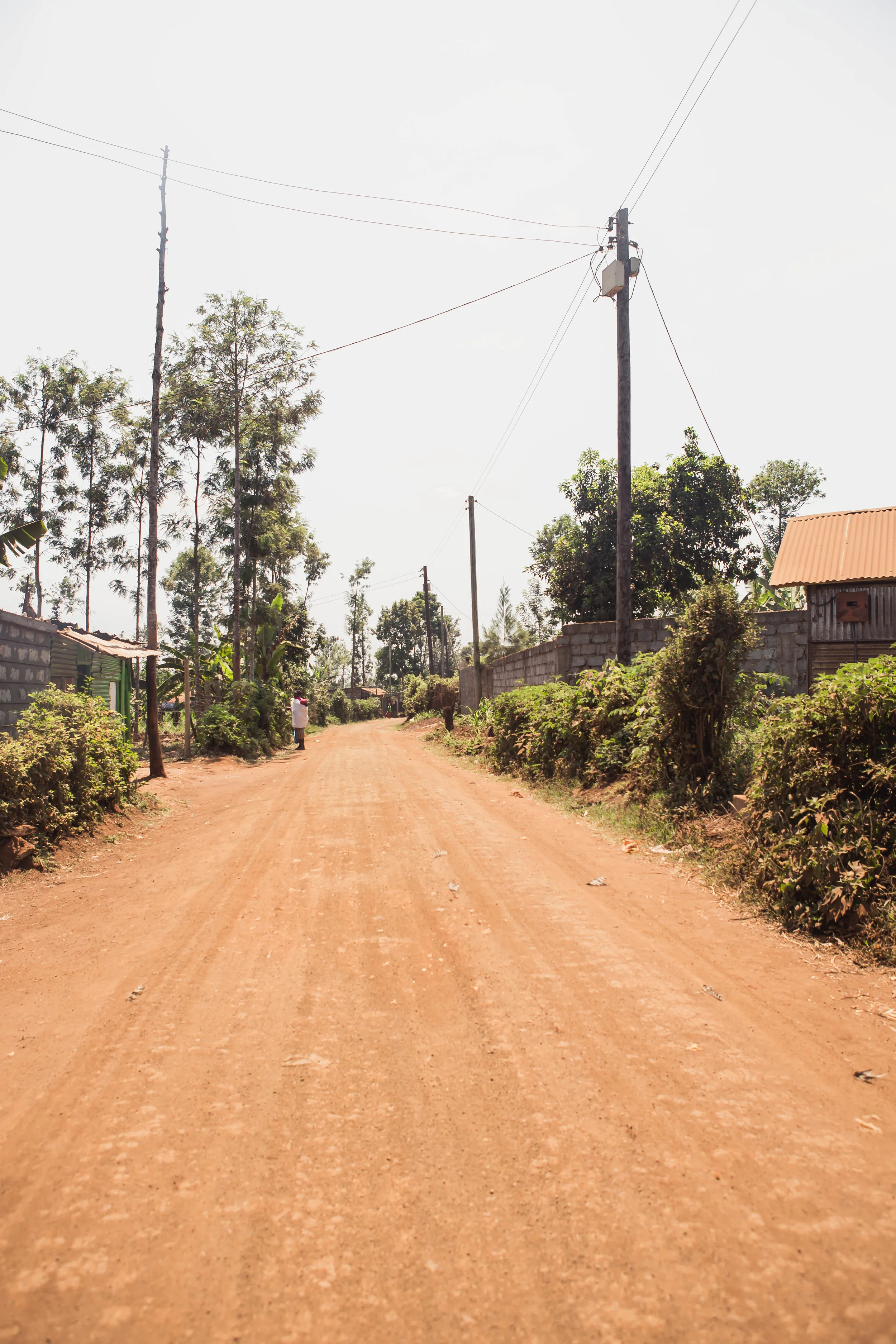Photo by Lee Rubin-Jakober
Kiambu County is a close neighbour to Kenya's capital city, Nairobi. With a history of constant rain showers, some believe the area was named after the Kikuyu phrase ‘kiambuu,'’ roughly translating to “place of drizzles.” The area continues to experience warm weather and regular rainfall, making it ideal for farming. Boasting a population of over 1.5 million, Kiambu is also the third wealthiest county in Kenya. But as large-scale coffee and tea farms flourish, many of those living in the county’s outskirts, including farm workers, remain underserved.
In rural Kiambu, the unequal distribution of resources is even more apparent. Muthiga Primary School is located in the countryside of Thika district. The school opened in 1917, and was the first in the area. Being a public school, children as young as four and as old as eighteen are able to attend for free. However, without sufficient government funding, the school lacks resources to support the more than 1,000 students in attendance. Esther Njoki, a local community development worker, says the school also experiences poor sanitation and does not have on-site water.
Photos by Lee Rubin-Jakober
Njoki attended Muthiga Primary school as a child, as did her grandfather, and now visits her old school as the Project Manager for Winners Group Initiative (WGI), a registered community-based organization, staffed by locals. As someone who was born and raised in rural Kiambu, Njoki understands the challenges other locals are facing with regards to education, health, and employment. After receiving her degree in commerce, she continues to work tirelessly to implement projects in the area that will empower women and youth to complete their high school education and become entrepreneurs.
The foundation of all projects at WGI is education, believing that empowering youth through education will lead to a more sustainable community. The staff have been working on a new library project, with the goal of inspiring an interest in learn-ing that surpasses the regular school curriculum.
Esther [Right], Emily, and Caroline listening and taking notes as the teachers who lead the hygiene club discuss challenges at Muthiga Primary School.
Photo by Lee Rubin-Jakober
“A holistic approach helps the community members find purpose and meaning in life through humanitarian values. Also, there is a learning and self-actualization in individuals which combines their physical, social and economical growth,” said Njoki.
When WGI started five years ago, they set-up a micro-loan system for single mothers in the community. The loans empower women to set up their own businesses. Rose Wanjiku, a single mother of six, provides for her family by selling her cow’s milk to neighbours. “I have a cow that I get milk from which is my only source of income. If I could be educated on the right breed and have support, then I could increase the milk production, which would increase my source of income,” said Wanjiku. She is hopeful that with the small loan from WGI, she can reach her goals.
Single mothers group member, Rose Wanjiku. These are some of the women who do laundry in the village, but dream of their own businesses. Rose would like to gain education for how to raise cows in order to produce more milk from the cow she already owns.
Photo by Lee Rubin-Jakober
Farming and agriculture remain a central part of life for communities in rural Kiambu. As WGI helps women increase their farming capacity, they also work to help preserve the land through mindful practices. Their environmental care program emphasizes an appreciation for natural resources, sustainable land development, and promoting alternatives to chemicals and pesticides. “By developing a community holistically, it helps them grow, know their worth and most import-ant, become self-reliant,” Njoki said.
Working with experts to provide training, WGI is hopeful that they can continue to improve the local farming production and boost the local economy while still preserving their land.
Photo by Lee Rubin-Jakober
Click here to support Winners Group Initiative.
This article was first published in PWB Magazine #12, on sale now.






![Esther [Right], Emily, and Caroline listening and taking notes as the teachers who lead the hygiene club discuss challenges at Muthiga Primary School.Photo by Lee Rubin-Jakober](https://images.squarespace-cdn.com/content/v1/584fb58a725e254d6b0830a3/1560919861323-8XON0OKCBM1FE0JFF9CX/M92A6771+%282%29.jpg)











